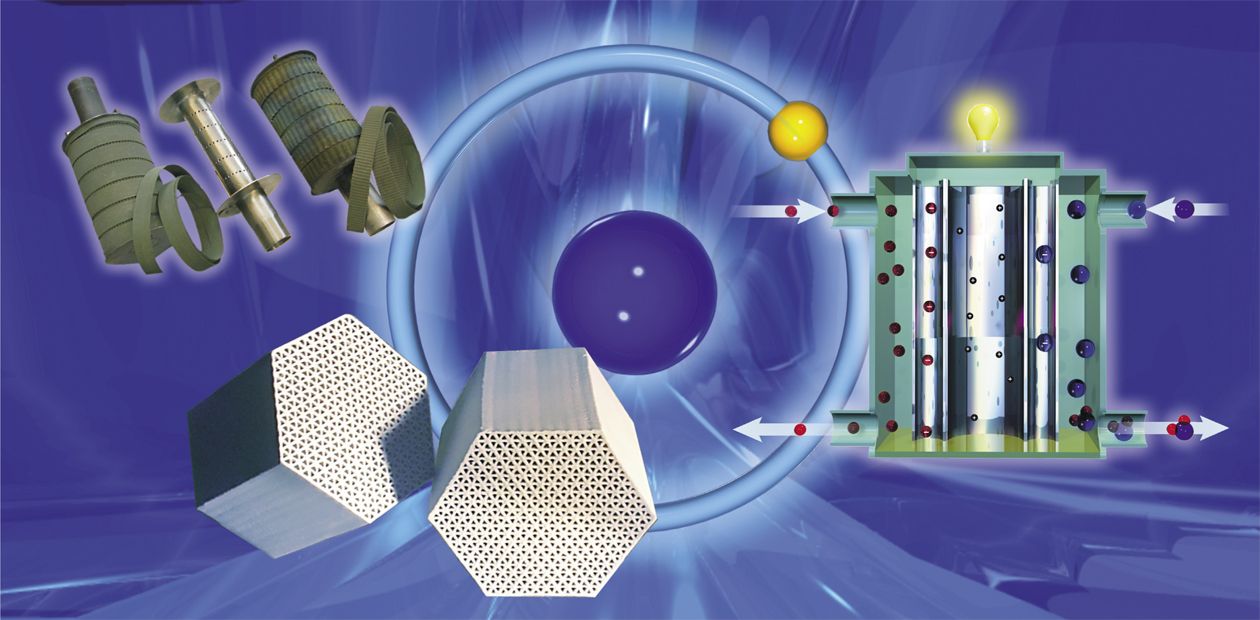On the Eve of Hydrogen Era
The Boreskov Institute of Catalysis, SB RAS, has developed highly efficient catalysts for the production of hydrogen-rich gas from fossil fuel. The catalysts consist of variously shaped honeycomb monoliths or strips
For the first time, hydrogen as an energy carrier was mentioned in Jules Verne’s The Mysterious Island. As far back as 1874, the great French novelist came up with the exciting idea that people in the future would get energy from water by splitting it into hydrogen and oxygen and then combusting hydrogen. This fantastic idea was not as crazy as one could have thought at first blush. Time has proved the prediction to be correct: now we have cars, notebook PCs, mobile phones, and even a submarine running on hydrogen fuel.
A fuel cell is a galvanic cell that converts the chemical energy of a fuel directly into electric energy by oxidation-reduction reactions of the reagents continuously fed to the electrodes from the outside. In a simple fuel cell, for example, in the one with a proton-exchange polymer electrolyte, pure hydrogen and oxygen are usually used. At the anode, hydrogen splits into positively charged ions and electrons. The H+ ions transfer, through the electrolyte, to the cathode where they combine with oxygen to produce water, which is released outside in the form of hot steam. The electrons transfer from the anode to the cathode through an external circuit, generating electric current
Hydrogen energy and fuel cells as its integral part have been knocking hard on the door which is half-opened. However, the production of hydrogen energy and fuel-cell-based power plants necessitates the development of novel, efficient technologies including the catalytic ones. Developing the theme “In Search of Energy”, we announce publication, in the next issue of Science First Hand, of an article by Prof. V. A. Sobyanin and Prof. V. A. Kirillov from the Boreskov Institute of Catalysis, SB RAS (headed by RAS Member V. N. Parmon), one of the leading research institutions in Russia in the field of the energy of the future.










